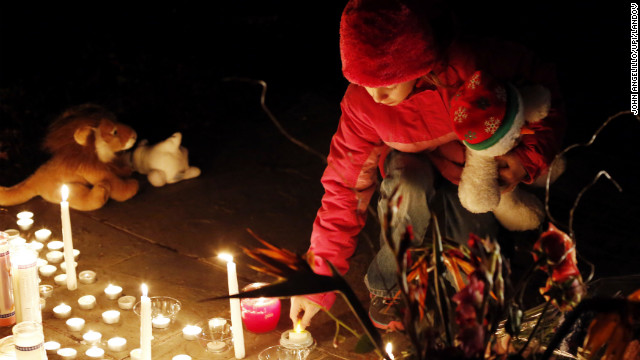Monica over at
The Undergrad Tales of a Psychology Major emailed me a fantastic group of questions that set me off and running in my (probably long-winded and unnecessarily detailed) response. She had some questions about intellectual disabilities, a topic that I find pretty cool. According to New York State, "intellectual disability" is defined as:
"...significantly subaverage general intellectual functioning, existing concurrently with deficits in adaptive behavior and manifested during the developmental period, that adversely affects a student's educational performance." [Part 200.1(zz7)]
If we're talking about
the numbers and standard scores, a student with an intellectual disability (ID) generally has cognitive ability, academic achievement, and adaptive behavior at or below a standard score of 70. However, every child with ID looks totally different from every other one. Each has their own strengths, weaknesses, etc, and each needs to be educated in their own particular way to maximize their learning. When developing interventions for students with ID, you must go on a kid-by-kid basis. A good place to start is to modify assignments and instruction to what each child needs (i.e. fewer items, extra repetition, larger print, extra pictures/graphs, pre-taught vocabulary, re-taught material, manipulatives and hands-on learning, additional time to complete assignments, etc).
I looked through my cases over this year and found a few examples to send Monica, which I'll share here. Note that none of these five kiddos has exactly the same background, scores, profile, strengths, weaknesses, levels of services, or placement. That's why I find ID so fascinating!
For all the scores below, 90-109 is Average, with a 15 point standard deviation on either side. Also note that a classification of ID should not be taken lightly. The classifying psychologist and team need to conduct a thorough record review, social history, teacher interview, observations, medical exam, academic assessment, intellectual assessment, adaptive assessment, and in some cases, visual-motor, memory, projective, etc tests, if they so choose.
Kindergartener—
See
this blog post for background information. After a very thorough evaluation, we classified this kiddo as a student with Multiple Disabilities due to pervasive delays, ID level cognitive ability, head trauma, and Fetal Alcohol Diagnosis. He was placed in a 6:1+1 Special Class for medically fragile students outside of our building. He receives occupational therapy (OT) and speech therapy, as well as services during the summer to prevent substantial regression.
Wechsler Preschool & Primary Scales of Intelligence, 3rd Ed. – Full Scale IQ (FSIQ) = 77
Bracken-3 Self Concept Scale – School Readiness = 77
Vineland Adaptive Behavior Composite = 74
Third Grader—
This kiddo was referred by her teachers in '10-'11 and had extensive interventions by a variety of school personnel. She was classified as a student with a Learning Disability and was placed in an Integrated Co-Teaching program (one gen ed teacher, one SPED teacher). We reevaluated her this year, and at that time, she was reading 26 words per minute (goal is 110 by end of 3rd) and was unable to recognize, identify, and count numbers to 100, let alone attempt addition and subtraction. She was academically very delayed, but was socially competent. She loved coming down for chats at lunch and was always giving hugs in the hallway. She was placed in a
15:1 Special Class outside of our building and her classification was changed to ID.
Wechsler Intelligence Scale for Children, 4th Ed. – FSIQ = 71
Woodcock-Johnson III Tests of Achievement – Broad Reading= 73; Broad Math= 79; Broad Written Language= 86
Fifth Grader—
This kiddo is currently in a 6:1+1 Special Class for students with intense behavioral and academic needs and is classified as a student with an Other Health Impairment. He has a diagnosis of ADD, for which he is not currently medicated, and he is uber distractible. He also displays symptoms of Autism (visual self-stimulation with small toys, perseverating on topics of interest, like TV shows). He has very limited social skills and often aggravates his more advanced classmates by violating their social boundaries to be friendly. He has no concept of social cues and is a big target for physical aggression--we have a safety plan for him so he doesn’t get killed by the boys in his class with Emotional Disturbances. Academically, he is at the first grade level or lower and reads 41 words per minute (goal is 115 by end of 5th). He is highly delayed both academically and socially. We are reevaluating him now and will be having his meeting at the end of the month. We have a placement saved for him for next year at a 12-month private school providing instruction in self-care and vocational skills to students with intellectual disabilities. His classification will be changed to ID.
Wechsler Abbreviated Scale of Intelligence, 2nd Ed. - FSIQ = 66
Woodcock-Johnson III Tests of Achievement – Brief Reading= 64; Brief Math= 54; Brief Written Language= 63
Vineland-II Adaptive Behavior Composite = TBD (I just finished testing him)
Fifth Grader—same classroom as above
This kiddo is also in a 6:1+1 classified as Learning Disabled. She has highly delayed daily living skills—can’t tie her shoes, has had bathroom accidents and not told anyone, can’t tell time or count coins, and has difficulty keep an orderly appearance that is socially appropriate (pulls her shirt and skirt up in class). She also tantrums in response to minor upsets and has very low frustration tolerance and coping skills. Her social skills are also impaired and she exhibits socially immature behaviors that hinder friendships. The kicker is that she’s a grade level reader at 118 words per minute and has passable writing skills, but her math is highly delayed. We reevaluated her and will be contacting the personnel in charge of the community-based life skills program within our district to evaluate her for their program.
Wechsler Intelligence Scale for Children, 4th Ed. – FSIQ = 60
Woodcock-Johnson III Tests of Achievement – Broad Reading= 85; Broad Math= 61; Broad Written Language= 89
Vineland-II Adaptive Behavior Composite = 62
Seventh Grader—
This kiddo was classified as a student with a Learning Disability and is currently placed within a 15:1 Special Class. Records indicated that she suffered a few strokes at birth due to ingesting meconium during delivery, but has not had any concerns past age four. On state exams in reading and math, she scored a Level 1, which does not meet basic standard. She cannot tell time or count coins, and has very basic skills in all academic areas. She is very immature socially and has difficulty working with others, but is an absolutely pleasant, sweet girl who is always smiling. We changed her classification to ID and she remains appropriately placed.
Wechsler Abbreviated Scale of Intelligence, 2nd Ed.- FSIQ = 62
Woodcock-Johnson III Tests of Achievement – Brief Reading= 83; Brief Math= 56; Brief Written Language= 71
Don't forget to check out and "Like" my Facebook page!






























